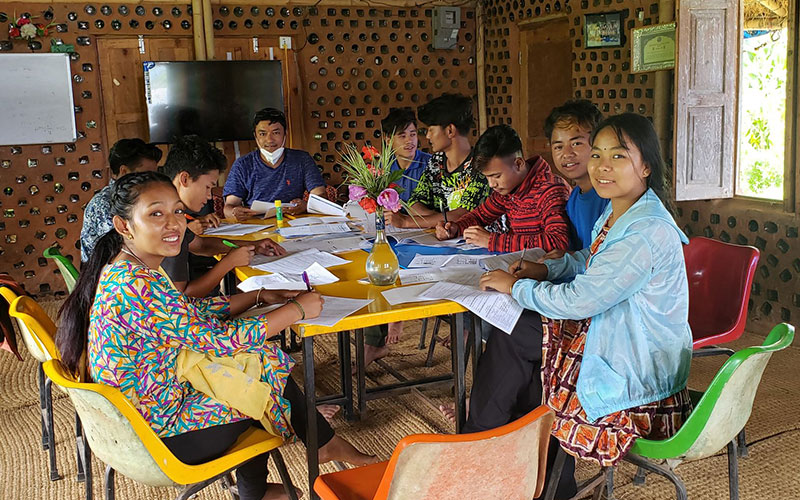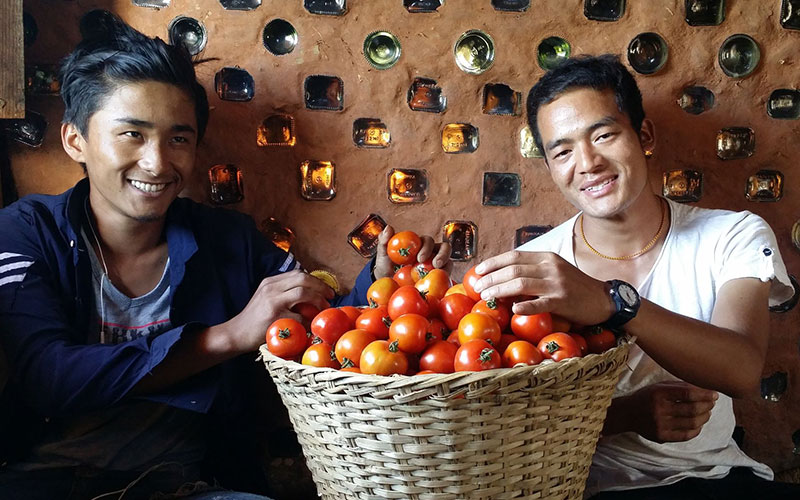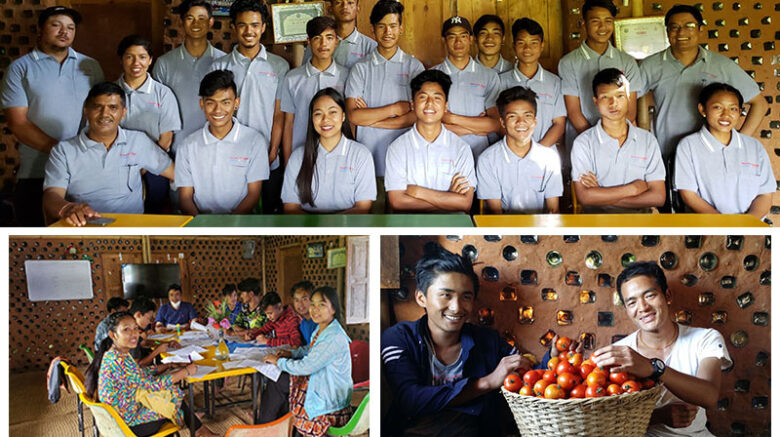Bottle House Students’ Sponsorship Programme
Background:
Shikharapur Sustainable Farmers’ School, also known as the ‘Bottle House’ has been initially established in 2011 by Shikharapur Community Learning Center as a site for farmers training and agricultural demonstrations. The Bottle House has provided trainings to nearby farming communities as well as matching grant support to help them initiate agribusinesses. As a school, the Bottle House integrates features of environmentally friendly but affordable innovations for teaching and demonstration purposes. It has classrooms made from bottles, eco-kitchen made of mud and bamboo, solar-pumped irrigation systems, rain-water harvesting ponds, a composting toilet, organic farms with livestock management (cows and goats) and home-made farming products. It also introduces a range of agricultural techniques, such as the making and use of organic pesticides and fertilizers, greenhouse farming, mulching, mushroom farming, the use of power tiller and drip irrigation, etc.
Since 2017, the Bottle House has been taking in interns and residential students from more rural areas, in order to support them to pursue formal education, which is otherwise not feasible in their home village. In 2019, the number of students has doubled from 7 to 16 in a short period of time. Students who come and study and live in the Bottle House are either enrolled in the Shikharapur open school or the Shikharapur community school or campus. Some of them are receiving second-chance education having dropped out previously while others have come to seek for better quality education and options not available in their home villages. The school supports all their living and school expenses and provides them with some living allowances. Apart from going to school, the students are expected to work in the school farms and learn skills. Recently, it has begun to provide daily computer classes, having loaned sufficient computer units from different organizations.
The school employs on-farm training rather than classroom training. Students learn by doing and practicing on the school farms and animals, with a holistic understanding from farming, purchasing and managing farming inputs, to products-making and marketing. Residential students are in-charge of running the school farms and generate income to sustain themselves and guest students. The school receives students from various fields such as social work, rural development and agriculture and enhances interaction and mutual learning between them and residential students. The Bottle House tries to generate sustainable income through expanding its agricultural activities and productions. In a year’s time between 2018 and 2019, SCLC has constructed two new bottle houses, established a nursery, and established a temporary computer lab. It also has a significant increase in land areas under cultivation and number of cows and goats. The school has currently leased more than 20 ropani of lands cultivating different types of vegetables, rice, maize, mushroom, etc. The current major concern is to increase productivity and revenue in order to support the ever-increasing in-coming students.
Students’ Sponsorship Programme:
Due to the increasing number of students seeking to enroll into open school, schools or campus through the Bottle House, the management decides to launch a sponsorship program to support the education fee of these students. The sponsorship programme will support education-related expenses including school fees, uniforms, books, stationaries, and other exposures and skills training. The living expense of students will be supported by the management and students themselves through their work in farming through the Bottle House. Such work aims to instill in our students practical skills for future self-employment.
The sponsorship can be full or partial (60% and above). Details of sponsorship is attached below.

Objectives:
The objectives of the sponsorship program are to provide students who have difficulty accessing quality education from remote village with formal education as well as practical knowledge and skills for sustainable and healthy food production and consumption, sustainable natural resource management, self-employment and income-generation.
Outcomes:
Learning from our students’ stories and experiences, SCLC management came to know about their needs and expectations. Based on the study, SCLC will continue to work in four main areas in the future:
- Provide access to formal and open school education to more students from remote areas and marginalized communities.
- Provide different skills training to students and surrounding communities, including soft skills.
- Provide a conducive and compassionate learning environment for Residential Students


